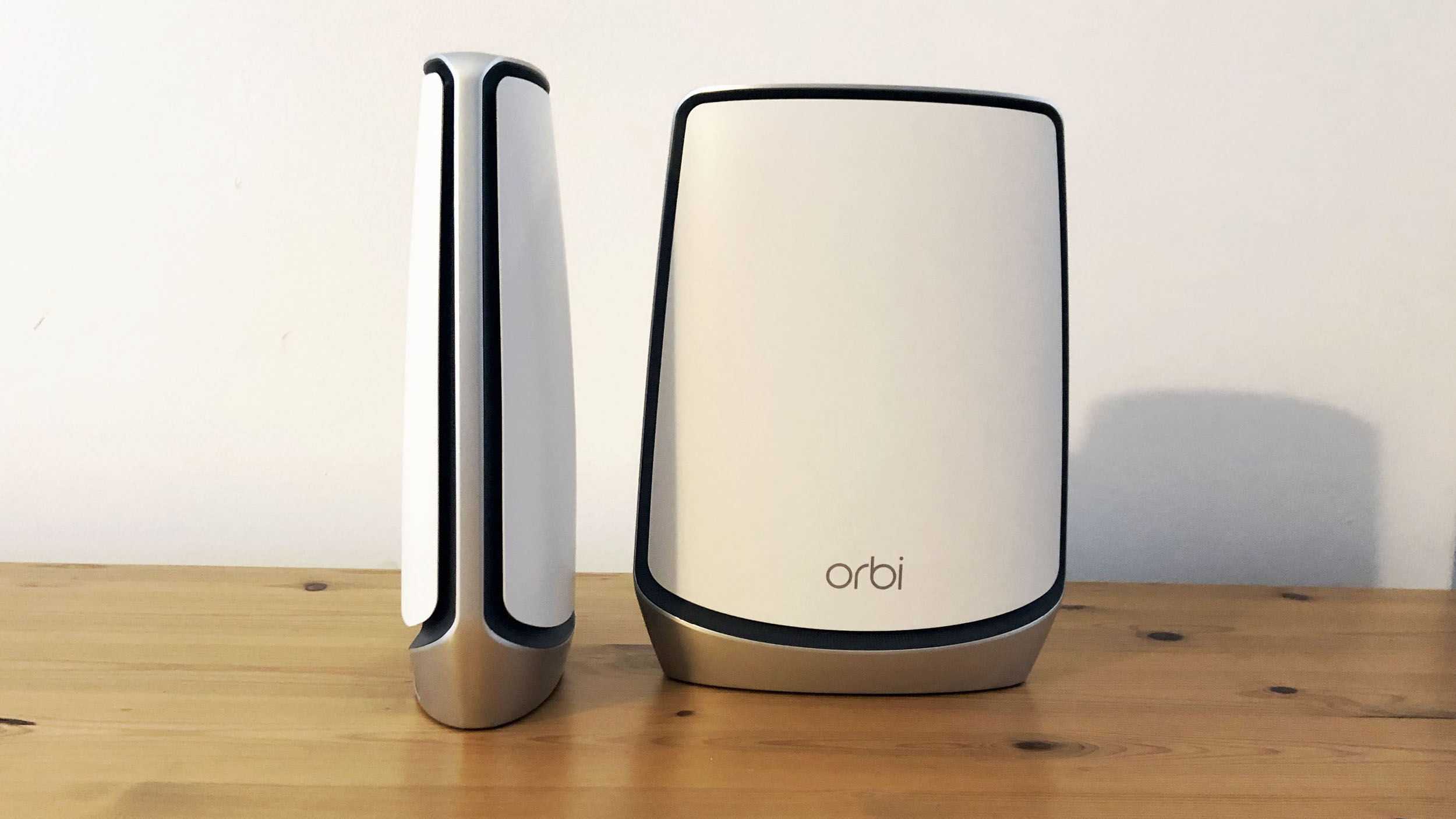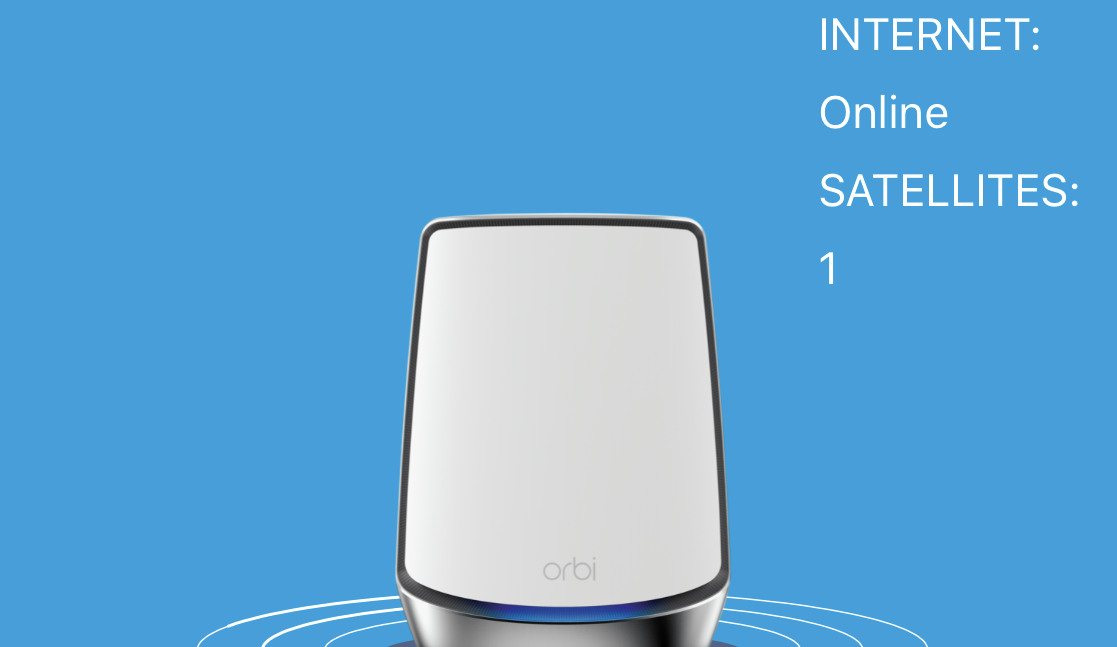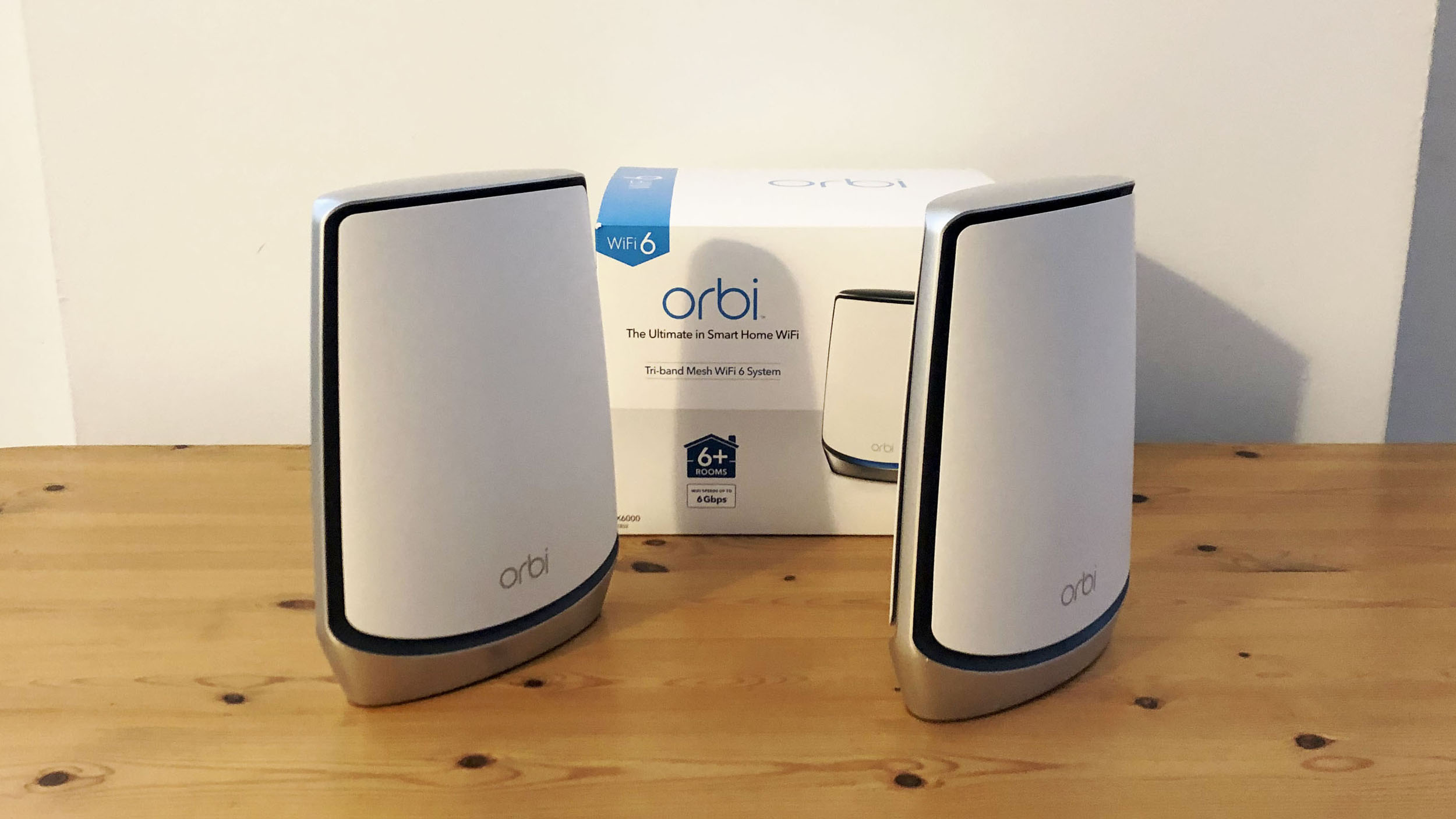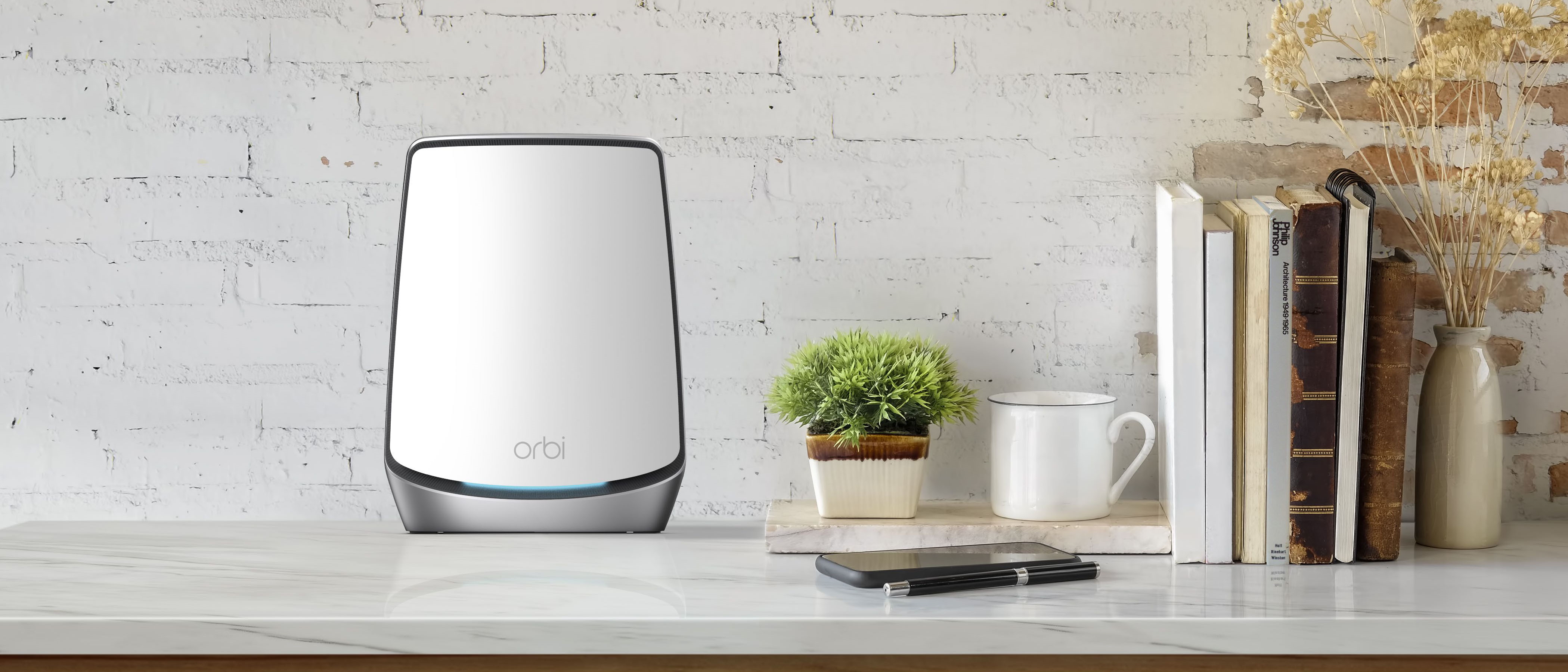TechRadar Verdict
It’s early days for the new Wi-Fi 6 standard, so the Orbi WiFi 6 isn’t an essential purchase right now ‘ – especially at this price. But if you’re looking to upgrade an existing router and need a fast, reliable mesh Wi-Fi system for your country mansion then the Orbi 6 is absolutely state-of-the-art.
Pros
- +
Excellent Wi-Fi range and speed
- +
Ideal for homes with lots of smart devices
- +
Simple set-up, and easy-to-use app
Cons
- -
Seriously expensive
- -
Little support for Wi-Fi 6 right now
- -
Limited parental controls, and advanced features
Why you can trust TechRadar
Two minute review
Netgear was one of the first manufacturers to release routers that use the new 802.11ax Wi-Fi standard - which also goes by the more consumer-friendly name of ‘Wi-Fi 6’ - and it has now brought that state-of-the-art Wi-Fi technology to its range of mesh networking systems with the new Orbi WiFi 6.
The technical specifications for this Wi-Fi 6 router system are seriously impressive, with tri-band Wi-Fi that uses 2.4GHz and two separate 5GHz bands that provide a maximum speed of 6Gbps – which is twice the speed of previous Orbi systems that use 802.11ac Wi-Fi.
The primary router connects to your existing modem or router in order to use its Internet connection, and uses a special high-speed Ethernet port capable of 2.5Gbps speeds. It also has four additional Gigabit Ethernet ports for wired connections, as does the secondary ‘satellite’ unit that you can place in another room in order to extend the range and reliability of your Wi-Fi network.

Wireless Connectivity: WiFi 6 (IEEE 802.11ax), tri-band with 1x 2.4GHz (1200Mbps) and 2x 5GHz (2400Mbps)
Beamforming: implicit and explicit for 2.4GHz/5GHz bands
Ports: Primary router - 2.5Gbps WAN, 4x Gigabit Ethernet; satellite - 4x Gigabit Ethernet
Dimensions: (HxWxD): 10 x 7.5 x 2.8 inches (255 x 190 x 70mm)
Weight: 2.86lb/1.3kg (each)
That top-of-the-range performance comes with a top-of-the-range price, though, starting at $700/£710 (around AU$1,000) for this two-piece kit, which is suitable for homes up to 5,000sq.ft.
That makes it one of the most expensive mesh systems we’ve ever seen – and there’s also a three-piece kit that includes an additional satellite for larger homes up to 7,500sq.ft, which weighs in at a hefty $1,000/£970 (around AU$1,500).
The Orbi WiFi 6 doesn’t disappoint on performance, though. Speeds didn’t vary too much with the primary router located in the same room as our normal router, with both routers recording speeds of 58.5Mbps.
However, our normal router drops to around 45Mbps in our back office, which is about 30ft away and separated by a couple of partition walls. In contrast, placing the Orbi satellite in that office boosted the Wi-Fi speed right back up to 58.4Mbps once more.
Sign up for breaking news, reviews, opinion, top tech deals, and more.
The only minor disappointment is that the Orbi app is rather basic. The initial set-up process is a breeze, as you can use the iOS or Android app to scan a QR code and the app will then automatically detect both Orbi units and link them together for you.
But, when setting up the Orbi units, the app simply creates a single network name and uses its own judgement to automatically assign your devices to the 2.4GHz or 5GHz bands.

To be fair, that’s easy and straightforward for people who don’t have too much experience with Wi-Fi networks, but more experienced users may prefer to create separate 2.4GHz and 5GHz networks and decide which to use for themselves.
Even more disappointing is that this expensive mesh system doesn’t provide any parental controls within its own app – Netgear simply tells you to go off and download the separate Disney Circle app, which only provides basic parental controls for free and then requires a subscription for more advanced controls.

Here is how the Netgear Orbi WiFi 6 fared in our brief suite of tests (conducted on a 50Mbps service):
Ookla Speed Test 5GHz (Download | Upload)
Within 5ft/1.5m, no obstructions: 58.5 | 6.3 Mbps
Within 30ft/9.1m, two plaster walls: 58.4 | 6.1Mbps
1.5GB Steam download 5GHz (peak speed)
Within 5ft/1.5m, no obstructions: 7.4MB/s
Within 30ft/9.1m, two plaster walls: 7.4MB/s
The other thing to remember is that there aren’t many computers or mobile devices that support Wi-Fi 6 at the moment, so an expensive state-of-the-art upgrade such as this isn’t absolutely essential right now.
But, of course, Wi-Fi 6 is still backwards-compatible with all your existing devices that use 802.11ac and older versions of Wi-Fi, so the Orbi WiFi 6 is still a good – if expensive – option for people who want the fastest possible Wi-Fi for larger homes.

Buy it if…
Your existing router is struggling
Mesh networking systems are ideal for larger homes where a single, conventional router might struggle to reach rooms on the upper floors, or to penetrate thick walls.
You want really fast Wi-Fi
There aren’t many computers or mobile devices that currently support Wi-Fi 6, but as they arrive they’ll be able to enjoy Wi-Fi speeds far greater than you can get from any existing router or mesh system.
You have a crowded ‘smart’ home
As well as its sheer speed, the new Wi-Fi 6 standard is designed to provide increased capacity for smart homes that contains dozens of different devices that are all connected to Wi-Fi at the same time - not just computers and smartphones, but also smart TVs, lights, security cameras and other devices.
Don’t buy it if…
You’re on a budget
If you just need to give your Wi-Fi a little bit of a boost then there are plenty of less expensive dual-band mesh systems that will do the trick for as little as $100.
You only live in a single-storey house or apartment
Mesh systems such as this are really designed for larger homes on multiple stories, or spread across thousands of square feet. Most of us will be better off with a couple of cheap Wi-Fi extenders or PowerLine adaptors.
You just want to watch Netflix
Most existing mesh systems that use 802.11ac Wi-Fi are fine for streaming video and music – even 4K video from Netflix. The real advantage of Wi-Fi 6 will come when your home is full of dozens of Wi-Fi-connected devices.
- These are the best Wi-Fi routers
- Check out our Netgear coupon codes to get the best deals on Netgear products.
Cliff Joseph is a former Editor of MacUser magazine, and a freelance technology writer with 30 year’s experience in the industry (and old enough to remember when Apple was close to going bust…).
His first job involved using Macs for magazine sub-editing and typesetting, which led to the realisation that these computer-thingies might actually turn out to be useful after all. After a few years specialising in the Mac side of the market, he went freelance and embraced the wide world of digital technology, including Windows PCs, digital audio and hi-fi, and networking. Somewhere along the line he also developed a bit of a gaming habit and has stubbornly waved the flag for Mac gaming for far too many years.
